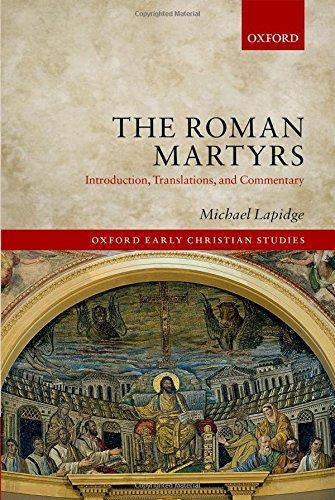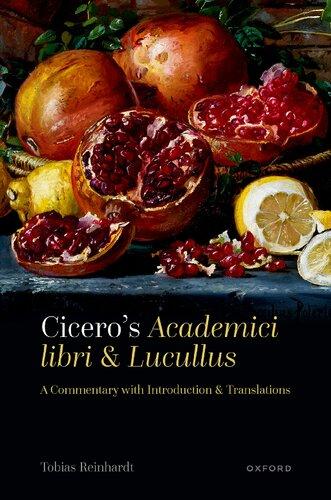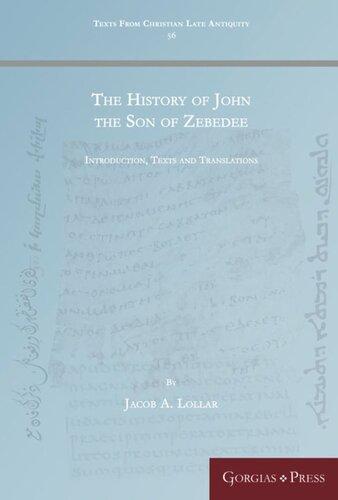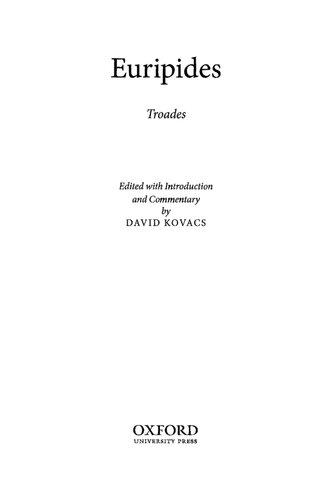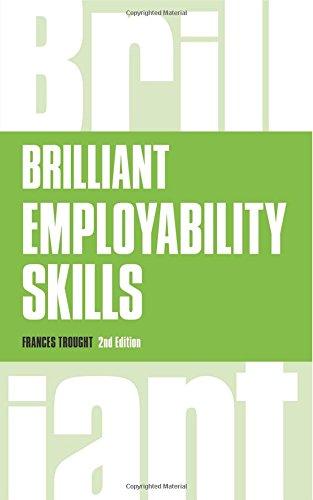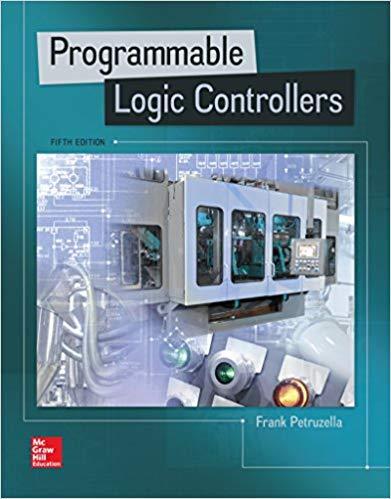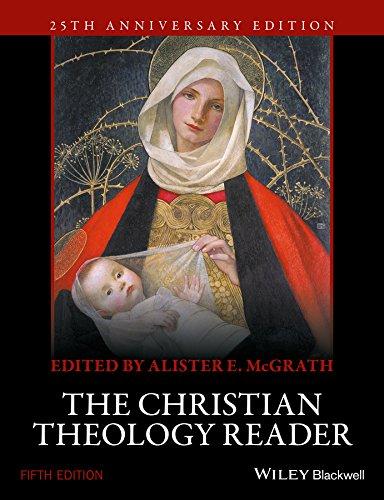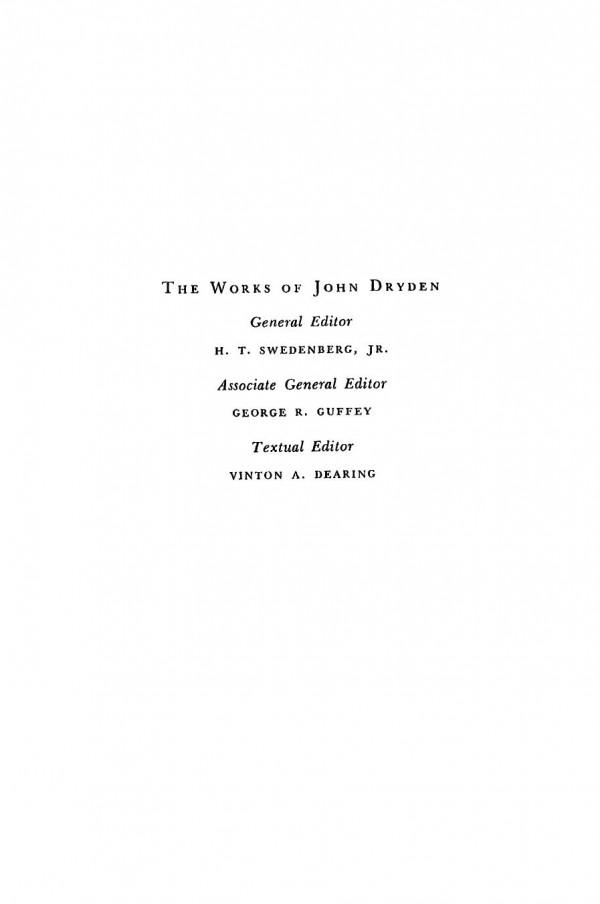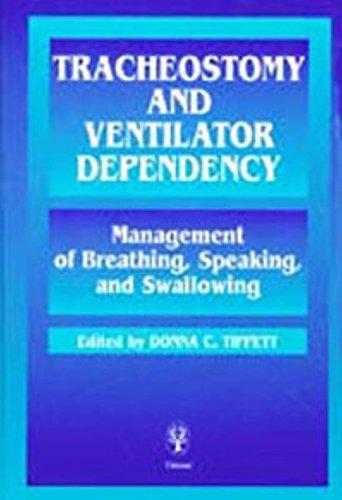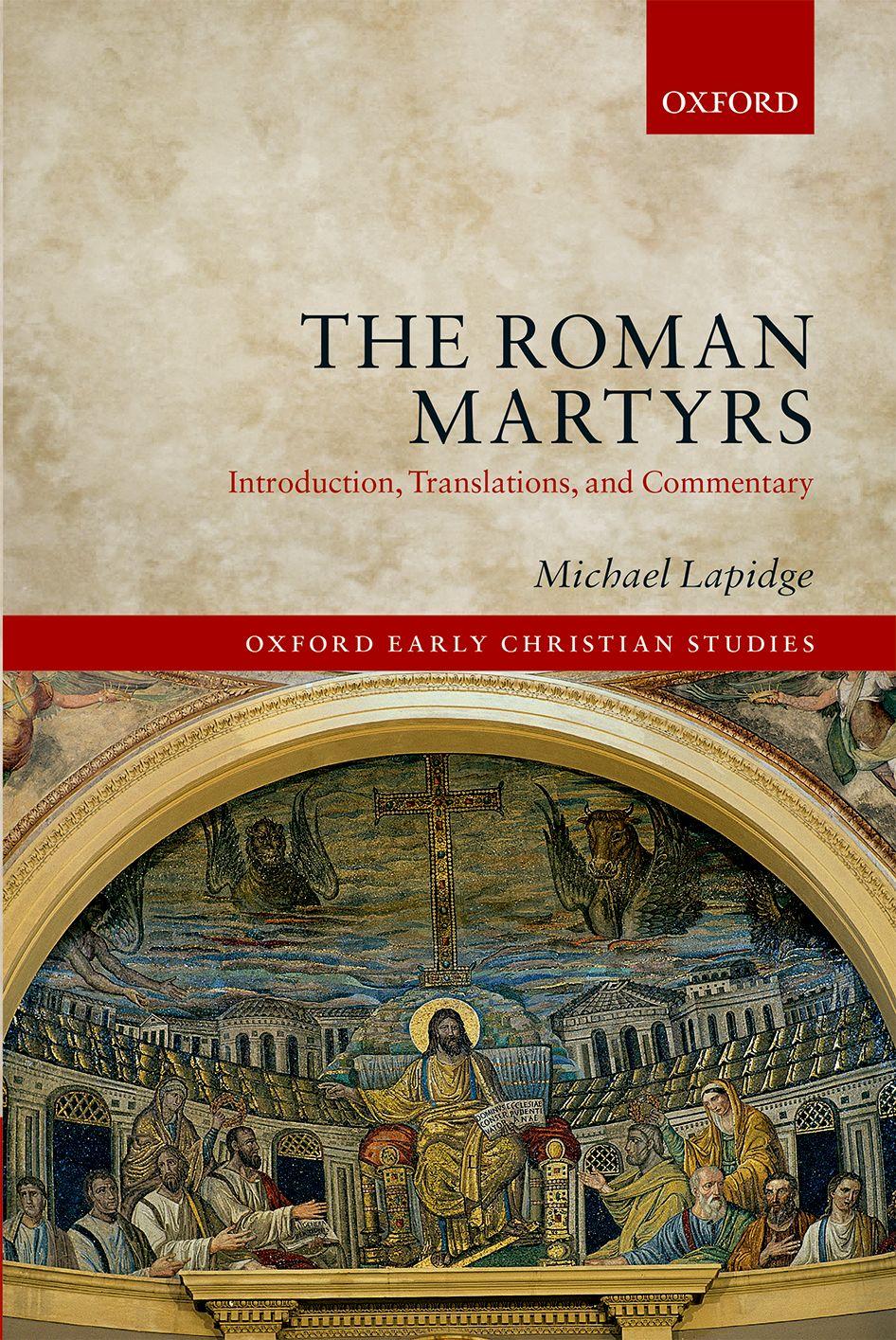TheRomanMartyrs
Introduction,Translations,andCommentary
MICHAELLAPIDGE
GreatClarendonStreet,Oxford,OX26DP, UnitedKingdom
OxfordUniversityPressisadepartmentoftheUniversityofOxford. ItfurtherstheUniversity’sobjectiveofexcellenceinresearch,scholarship, andeducationbypublishingworldwide.Oxfordisaregisteredtrademarkof OxfordUniversityPressintheUKandincertainothercountries
©MichaelLapidge2018
Themoralrightsoftheauthorhavebeenasserted
FirstEditionpublishedin2018
Impression:1
Allrightsreserved.Nopartofthispublicationmaybereproduced,storedin aretrievalsystem,ortransmitted,inanyformorbyanymeans,withoutthe priorpermissioninwritingofOxfordUniversityPress,orasexpresslypermitted bylaw,bylicenceorundertermsagreedwiththeappropriatereprographics rightsorganization.Enquiriesconcerningreproductionoutsidethescopeofthe aboveshouldbesenttotheRightsDepartment,OxfordUniversityPress,atthe addressabove
Youmustnotcirculatethisworkinanyotherform andyoumustimposethissameconditiononanyacquirer
PublishedintheUnitedStatesofAmericabyOxfordUniversityPress 198MadisonAvenue,NewYork,NY10016,UnitedStatesofAmerica
BritishLibraryCataloguinginPublicationData Dataavailable
LibraryofCongressControlNumber:2017939762
ISBN978–0–19–881136–7
Printedandboundby CPIGroup(UK)Ltd,Croydon,CR04YY
LinkstothirdpartywebsitesareprovidedbyOxfordingoodfaithand forinformationonly.Oxforddisclaimsanyresponsibilityforthematerials containedinanythirdpartywebsitereferencedinthiswork.
Preface
Thepresentvolumecontainstranslationsofandcommentariesonforty passiones ofRomanmartyrs,composedbetweenroughly AD 400and AD 700; itdoesnotcontaintheLatintextsofthe passiones inquestion.Thereare reasonswhy,atthisstageofourresearch,itwouldnotbepossibletoprovide theLatintextsalongsidetheEnglishtranslations:oftheforty passiones,only oneisavailableinanythingresemblingacriticaledition;theremainder existmostlyin fifteenth-,sixteenth-andseventeenth-centuryeditions(see pp.40–1).Becausemostoftheseearlyeditionsarenoteasilyaccessible,the passiones havebeenneglectedasaliterarygenre.Itismyviewthatannotated translationsrepresentthe firststageinmakingthesetextsaccessibletoawider scholarlypublic.
The passiones areworksof fiction.Thestoriestheyrelateconcerningthe martyrdomsofRomanmartyrsarewhollyinvented,andareutterlyunreliable ashistoricalevidence.Nevertheless,the passiones,almostincidentally,cast fascinatinglightonmanyaspectsoflateantiqueRome itstopography,administration,socialhierarchy,andlegalmachinery.Aboveall,theyhelpto illuminatethemanyRoman titulus-churchesandcemeterieswhichduringthe centuriesinquestion(fifthtoseventh)begantoattractincreasinglylarge numbersofpilgrimsandvisitors.Tosomeextent,the passiones arealiterary responsetothisupsurgeinpilgrimactivity.Inanycase,theseaspectsofRoman lifecan,Ithink,bestudiedaswellintranslationasintheoriginalLatintexts. Myinterestinthese passiones beganwhenIwasteachingattheUniversity ofNotreDame(1999–2004),wheretheHesburghLibraryhasexceptionally richholdingsinpatristicliteratureandpalaeo-Christianarchaeology,and whereIhadtheprivilegeofteachingagroupofenthusiasticyoungLatinists inannualseminarsonthe passiones oftheRomanmartyrs.My firstdebtisto thoseNotreDamestudents,particularlyLeslieLockett,whoasmydesignated researchassistantassembledahugecollectionofphotocopiesofrelevanttexts andstudies,andPaulPatterson,whokey-boardedthetextsofthe passiones so astoconstituteamachine-readabledatabase.SincereturningtotheUK,Ihave beenabletodrawontheadviceofJimAdamsandMichaelReeveinmattersof LateLatinphilology.IoweagreatdebttotheBollandists,whoforoverfour centurieshavebeenstudyingandeditingthesetexts,andwhosepublications aretheindispensablefoundationforallworkinthe fieldofLateLatin hagiography.Thepresent-dayBollandists,inparticulartheirDirector,Robert GoddingS.J.,verykindlyplacedtheresourcesoftheBollandists’ greatlibrary atmydisposal,evenonoccasionacquiringbooksformypersonaluse.
GillianClarkverykindlyofferedawarmwelcometothisbookintheseries OxfordEarlyChristianStudies,ofwhichsheisageneraleditor.Iamespecially gratefultoMarkHumphries,who,astheOUP’sreferee,producedameticulouslydetailedreportwhichenabledmetocorrectnumerouserrors,andto improvetheargumentincountlessways.Althoughheactedanonymouslyas theOUP’sreferee,hekindlywaivedhisanonymitysothatwewereableto discussmanyoftheissueshehadraised;andIwouldliketoaddthatMarkhas beenanenthusiasticsupporterofthisprojectovermanyyears:indeed,itwas hisenthusiasmwhichpromptedmetodrawtogetherthemanyyears’ research andputtheworkintoits finalform.Finally,KarenRaith,thedesk-editorfor religionattheOUP,hasbeenwarmlysupportiveandsplendidlyefficientin everyway.So,too,theOUP’scopy-editor,LouiseLarchbourne,whoworked meticulouslythroughthetypescriptandhelpedtoclarifythetranslationsat manypoints,andtoidentifyerrorswhichIhadoverlooked.
MichaelLapidge
15February2017
1.Theintra-urbanchurchesdedicatedtoRomanmartyrs
2.SuburbancemeterieshousingshrinestoRomanmartyrs xvi
TEXTSANDCOMMENTARIES
I.StFelicitasandHerSevenSons45
II.SS.Anastasia,Chrysogonus,andCompanions54
III.StSebastianandCompanions88
IV.StCaeciliaandCompanions138
V.PopeClement165
VI.SS.Sixtus,Laurence,andHippolytus(PassioVetus)180
VII.PopeCornelius195
VIII.SS.NereusandAchilleusandCompanions201
IX.SS.Eugenia,Protus,andHyacinthus228
X.SS.ChrysanthusandDaria250
XI.StSusanna270
XII.PopeCallistus287
XIII.StEusebiusthePriest297
XIV.PopeFelixII303
XV.SS.PudentianaandPraxedis307
XVI.SS.PolychroniusandParmenius,AbdonandSennes, PopeSixtusII,Laurence,andHippolytus316
XVII.SS.AgnesandEmerentiana348
XVIII.SS.Gallicanus,John,andPaul363
XIX.SS.ProcessusandMartinianus381
XX.PopeMarcellusandCompanions390
XXI.SS.PrimusandFelicianus411
XXII.SS.Marius,Martha,Audifax,andAbacuc420
XXIII.SS.MarcellinusandPeter436
XXIV.TheFourCrownedMartyrs448
XXV.StPancratius468
XXVI.PopeStephenI477
XXVII.SS.GordianusandEpimachus494
XXVIII.TheGreekMartyrs500
XXIX.SS.EusebiusandPontianus517
XXX.PopeUrban526
XXXI.SS.RufinaandSecunda551
XXXII.SS.Alexander,Eventius,andTheodulus557
XXXIII.SS.CalogerusandParthenius573
XXXIV.SS.SerapiaandSabina582
XXXV.SS.FelixandAdauctus593
XXXVI.SS.Simplicius,Faustinus,andBeatrix598
XXXVII.StSymphorosaandHerSevenSons603
XXXVIII.StPigmenius608
XXXIX.StGetulius617
XL.StBasilides625
AppendixI:The Depositiomartyrum (AD 354)633
AppendixII:The Epigrammata ofDamasus637
AppendixIII:RomanMartyrsinthe MartyrologiumHieronymianum 649
AppendixIV:Seventh-centuryPilgrimItinerariestoRoman ChurchesandCemeteries659
AppendixV:TheCommemorationofRomanMartyrsinEarly RomanLiturgicalBooks667
Abbreviations
ABAnalectaBollandiana
ActaSS. ActaSanctorumquotquotorbecoluntur,ed.Bollandists,68vols. (Antwerp,Tongerloo,andBrussels,1643–1925)
BHG F.Halkin, BibliothecaHagiographicaGraeca,3rded.(Brussels, 1957)
BHL [Bollandists], BibliothecaHagiographicaLatina,2vols. (Brussels,1898–1901;with Supplementum (1986))
BlaiseA.Blaise, Dictionnairelatin–françaisdesauteurschrétiens (Turnhout,1954)
BSSBibliothecaSanctorum,13vols.(Rome,1961–70,withthree volumesofappendices,1987,2000,2013)
CCSLCorpusChristianorumSeriesLatina (Turnhout)
CGLCorpusGlossariorumLatinorum,ed.G.Goetz,7vols.(Leipzig, 1888–1923)
CILCorpusInscriptionumLatinarum (Berlin,1863–)
CPGClavisPatrumGraecorum,ed.M.Geerard,5vols.and Supplementum (Turnhout,1983–98)
CPLClavisPatrumLatinorum,ed.E.Dekkers,3rded.(Steenbrugge, 1995)
CSELCorpusScriptorumEcclesiasticorumLatinorum (Vienna)
DACLDictionnaired’archéologiechrétienneetdeliturgie,ed.F.Cabrol andH.Leclercq,15vols.in30(Paris,1907–53)
DuCangeC.DuFresneDuCange, Glossariumadscriptoresmediaeet infimaelatinitatis,3vols.(Paris,1678)
Dufourcq, Gesta A.Dufourcq, Étudesurles “Gestamartyrum” romains,5vols. (Paris,1900–7;2nded.,Paris,1988)
EECEncyclopediaoftheEarlyChurch,ed.A.DiBerardino,trans. A.Walford,2vols.(Cambridge,1992)
EPEnciclopediadeipapi,3vols.(Rome,2000)
FerruaandCarlettiFerrua,A.andC.Carletti, DamasoeimartiridiRoma (Vatican City,1985)
GCSDiegriechischenchristlichenSchriftstellerdererstendrei Jahrhunderte (LeipzigandBerlin,1897–)
ICURInscriptionesChristianaeUrbisRomaeseptimosaeculo antiquiores, ed.G.B.deRossi,2vols.(Rome,1857–88);and NovaSeries,10vols.(Rome,1922–92)
Jones, LRE
A.H.M.Jones, TheLaterRomanEmpire,284–602,4vols. (Oxford,1964)
Krautheimer, CBCR R.Krautheimer etal., CorpusBasilicarumChristianarum Romae,5vols.(VaticanCityandNewYork,1937–77)
Lanéry, ‘Hagiographie’
C.Lanéry, ‘Hagiographied’Italie(300–550).I.LesPassions latinescomposéesenItalie’,in Hagiographies V,ed.G.Philippart, CorpusChristianorum(Turnhout,2010),pp.15–369
LP the Liberpontificalis:ed.T.Mommsen, Liberpontificalis(pars prior), MGH, GestaPontificumRomanorum (Berlin,1898);ed. L.Duchesne, LeLiberpontificalis:texte,introductionet commentaire,3vols.(Paris,1886–1957);trans.R.Davis, The BookofPontiffs(LiberPontificalis).TheAncientBiographiesof theFirstNinetyRomanBishopstoAD715,2nded.,TTH6 (Liverpool,2000)
LTURLexiconTopographicumUrbisRomae,ed.M.Steinby,6vols. (Rome,1993–2000)
LTUR. SuburbiumLexiconTopographicumUrbisRomae.Suburbium,ed.A.La Regina,5vols.(Rome,2000–8)
MGHMonumentaGermaniaeHistorica
MGH, AAMonumentaGermaniaeHistorica, AuctoresAntiquissimi
MGH, EpistolaeMonumentaGermaniaeHistorica,Epistolae(inquarto)
MombritiusB.Mombritius, Sanctuarium (Milan,1478;ed.monachi Solesmenses,2vols.(Paris,1910))
NiermeyerJ.F.Niermeyer, MediaeLatinitatisLexiconMinus (Leiden, 1976)
PGPatrologiaeGraecaecursuscompletus,ed.J.P.Migne,162vols. (Paris,1857–66)
PIR1
PIR2
ProsopographiaImperiiRomanisaec.I.II.III.,ed.E.Klebs, H.Dessau,andP.VonRohden,3vols.(Berlin1897–8)
ProsopographiaImperiiRomanisaec.I.II.III,ed.E.Groag, A.Stein etal.,2nded.,8vols.(BerlinandLeipzig,1933–2015)
PLPatrologiaeLatinaecursuscompletus,ed.J.P.Migne,221vols. (Paris,1844–64)
Platner–AshbyS.B.Platner, ATopographicalDictionaryofAncientRome,rev. T.Ashby(Oxford,1926)
PLRETheProsopographyoftheLaterRomanEmpire,I. A.D.260–395, ed.A.H.M.Jones,J.R.MartindaleandJ.Morris(Cambridge, 1971)
RACrRivistadiarcheologiacristiana
RichardsonL.Richardson,jr, ANewTopographicalDictionaryofAncient Rome (BaltimoreandLondon,1992)
Abbreviations xiii
SHAScriptores [rectius Scriptor] HistoriaeAugustae,ed.andtrans. D.Magie,3vols.(Cambridge,MA,1932)
SouterA.Souter, AGlossaryofLaterLatinto600 AD (Oxford,1949)
Stotz, Handbuch P.Stotz, HandbuchzurlateinischenSprachedesMittelalters, 5vols.(Munich,1996–2004)
TLLThesaurusLinguaeLatinae (Munich,1896–)
TTHTranslatedTextsforHistorians(Liverpool)
Naumachia
Mausoleum of Hadrian
Via Cornelia
St Peter
VATICAN
St Agnes in agone
Campus Martius Circus of Domitian Circus Flaminius
Maps
Via Salaria Nuova
Gardens of Sallust
Sallustian Palace Castra Praetoria
St Laurentius in Lucina St Susanna Arx
St Marcellus
Tiber Island
Baths of Diocletian AltaSemita
St Pudentiana
St Eusebius
Urbs Ravennatium
St Caecilia
CAPITOLINE AVENTINE
St Sabina
Temple of Jupiter Capitolinus Carcer Mamertinus Forum Forum of Trajan Circus Maximus CaracallaBathsof
Urban prefecture
CAELIAN St Chrysogonus
PALATINE St Anastasia
St Bibiana
Baths of Trajan
ESQUILINE Temple of Tellus Flavian Amphitheatre
St Clement St Praxedis
SS. Quattuor Coronati
SS. John and Paul
SS. Nereus and Achilleus
Map1. Theintra-urbanchurchesdedicatedtoRomanmartyrs
Via Cornelia Via Aurelia
Calepodius ad duos Felices
St Valentine ROME ad Clivum Cucumeris
Bassilla
SS. Processus and Martinianus St Pancratius St Peter Hilaria
Pontianus
Thrason Giordani
Maximus
Priscilla St Nicomedes St Agnes
St Hippolytus
Generosa
SS. Marcus and Marcellianus
Commodilla
Coemeterium maius St Laurence
SS. Gordianus and Epimachus Apronianus
Callistus
Praetextatus St Sebastian Domitilla St Paul
Tiburtina
inter duas lauros
Map2. SuburbancemeterieshousingshrinestoRomanmartyrs
Introduction
Thepresentvolumecontainstranslations,withindividualintroductionsand commentaries,offorty passiones ofRomanmartyrs,composedforthe mostpartatRomeitself,duringaspanofsome250years,between AD c.425and c.675.Insumthese passiones constituteasubstantialbodyof literatureproducedataperiodwhentheliteratureofRomeitself apart fromthegreat figuresofBoethius,Cassiodorus,andGregorytheGreat is notwellrepresented;yetasacorpustheyarepoorlyunderstood.Theyusually donotmeritevenapassingmentioninliteraryhistoriesoftheperiod,suchas Schanz–Hosius,1 Wright–Sinclair,2 orConte.3 AsWalterBerschinobserved, theLatin passiones composedinItaly andafortioriinRome arelargelya questionmark.4 Noattempthaseverbeenmadetocompileareliablelistof the passiones inquestion.5 Thereare,ofcourse,validreasonsforthesilence ofliteraryhistorians.Withveryfewexceptions,thetextsareavailableonly ineditionsdatingfromthe fifteenth,sixteenth,andseventeenthcenturies.No attempthaseverbeenmadetogatherthemtogetherasacorpus,andonly sporadiceffortshavebeenmadeduringthepasttwocenturiestoproduce reliablescholarlyeditions.Furthermore,sincetheywerecomposedcenturies
1 M.Schanz, GeschichtederrömischenLitteraturbiszumGesetzgebungswerkdesKaisers Justinian,IV/2: DierömischeLitteraturvonConstantinbiszumGesetzgebungswerkJustinians, rev.C.HosiusandG.Krüger(Munich,1920).
2 F.A.WrightandT.A.Sinclair, AHistoryofLaterLatinLiteraturefromtheMiddleofthe FourthCenturytotheEndoftheSeventeenthCentury (London,1931).WrightandSinclairtreat namedauthorsonly,andprovidenodiscussionofthesubstantialamountofanonymous literaturefromtheLateLatinperiod.
3 G.B.Conte, LatinLiterature:AHistory,trans.J.B.Solodow,rev.D.FowlerandG.W.Most (Baltimore,MD,1999).Contebrieflymentionstheproconsular acta,andsuchearlytextsasthe PassioS.Perpetuae (pp.599–600),butprovidesnodiscussionofthe fictional passiones whichare thesubjectofthepresentvolume.
4 BiographieundEpochenstil,II,p.173: ‘DasgroßeFragezeichenderitalienischenBiographie desfrühenMittelaltersistdiePassionsliteratur.WievielePassionensindindiesemLand... geschriebenworden?’
5 ApointmadeforciblybyClaudioLeonardi, ‘L’agiografiaromananelsecoloIX’,in Hagiographie, cultureetsociétésIVe–XIIesiècle (Paris,1981),pp.471–90,at472.Thelistin CPL (nos.2156–247)isa helpfulbeginning,butisfarfromcomplete.
aftertheendingofpersecutionofChristians,theyareworthlessaswitnessesto theactualtrialandexecutionofChristiansinearliertimes,andarevitiatedby suchoutrageouserrorsofchronologythattheyhaveearnedthecontemptof modernhistoriansofthelaterRomanempire.Withfewexceptions the passiones ofStSebastian(III)andStCaecilia(IV),bothofwhichwerecomposedat RomebyArnobiustheYounger theyaretheworkofanonymousclericswho showlittlesignofadvancedtraininginLatinandwhowereseldomcapableof anythingmorethanpedestrianprose.Yetscholarshavelongrealizedthat,in spiteoftheirobvioushistoricalandstylisticdeficiencies, passiones couldhelpto throwlightontheconcernsandanxietiesoftheaverageRomanChristian duringthe250yearsduringwhichtheywerebeingcomposed ifonlythey couldbereliablydated.Inrecentyears,however,greatprogresshasbeen madeinunderstandingthechronologyofthese passiones,notablybyvirtueof thepioneeringlaboursofCécileLanéry,6 anditishopedthatthepresent volumewillcontributetoafurtherstageinourunderstandingofwhatwasa verypopularandveryinfluential,ifgrosslyneglected,genreofChristian–Latin literature.
WHOWERETHEROMANMARTYRS?
Manyofthe passiones translatedinthepresentvolumeconcern ‘martyrs’ whoseclaimstoauthenticityaredubiousintheextreme.Onemightconsider as ‘authentic’ martyrsthosewhosemartyrdomsarerecordedinthe Depositio martyrum,hencebefore c.336(AppendixI,below)orwerecommemoratedby ametrical titulus composedbyPopeDamasus,hencebefore384(AppendixII, below).Onthiscriterion,those passiones devotedtowhatmaybe ‘authentic’ martyrsarethefollowing:thesevensonsofStFelicitas,thoughnotStFelicitas herself(I);StSebastian(III),StTiburtius(III),SS.AbdonandSennes(VIand XVI),PopeSixtusII(VIandXVI),StLaurence(VIandXVI),StHippolytus (VIandXVI),PopeCornelius(VII),SS.NereusandAchilleus(VIII),SS.Protus andHyacinthus(IX),StBassilla(IX),PopeCallistus(XII),SS.Agapitusand Felicissimus(XVI),StAgnes(XVII),PopeMarcellus(XX),theFourCrowned Martyrs(XXIV),SS.MarcellinusandPeter(XXIII),StHermes(XXXII), SS.CalogerusandParthenius(XXXIII),SS.FelixandAdauctus(XXXV), andSS.Simplicius,FaustinusandBeatrix(XXXVI).Note,however,thatthe
6 Lanéry, ‘Hagiographie’,aswellashertwoimportantstudiesofArnobiustheYounger: ‘ArnobeleJeune’ and ‘Nouvellesrecherches’.Thereisahelpfulassessmentoftheimportanceof Lanéry’swork,andofthewaysinwhichthe passionesmartyrum werereflectedintheconstructionanddecorationof fifth-centuryRomanchurches,byHeid, ‘RomsSelbstfindunginbarbarischerZeit’ .
statementthatthese passiones treatwhatmaybe ‘authentic’ martyrsdoesnot implythatthenarrativeswhichdescribetheirmartyrdomsareanythingother thanpure fiction:althoughsomeonenamedSebastianmaywellhavebeen martyredbeforeorduringthe ‘GreatPersecution’,thereisnowayofproving thathewaschiefofstaffofDiocletian’spalaceguard,asheisdescribedinthe passio bearinghisname,letalonethathewasmartyredintheabsurdwaythatis describedinthistext.
However,many,perhapsall,oftheremaining passiones treatmartyrswhose martyrdomsarepatentfabricationsbytheauthorsof passiones.The passiones wereconfectedtocommemorateorpublicizethefounderseitherofintra-urban titulus-churches,suchasStChrysogonus(II),StAnastasia(II),StCaecilia(IV), PopeClement(V),StSusanna(XI),StEusebiusthepriest(XIII),StPudentiana (XV),StPraxedis(XV),SS.JohnandPaul(XVIII),StSabina(XXXIV),and StBibiana(XXXVIII),orofsanctuariesorhypogeanbasilicasinsuburban cemeteries,suchasStEugenia(IX),PopeFelixII(XIV),SS.Processusand Martinianus(XIX),SS.MariusandMartha(XXII),StPancratius(XXV),SS. RufinaandSecunda(XXXI),SS.Alexander,Eventius,andTheodulus(XXXII), StGetulius(XXXIX),andStBasilides(XL).
WhatfactorsguidedtheChristian–Latinauthorsintheirchoiceofsubjects fortreatmentina passio?Why,forexample,wasno passio evercomposedfor StIgnatius,agenuineRomanmartyrwhowasexecutedatRome c. AD 140?7 Or forPopeFabian(236–50),whowasexecutedduringthepersecutionofDecius in AD 250?8 InsteadofthesegenuineRomanmartyrs,weareprovidedwith passiones ofmanymartyrswhowere fictitiouscreationsandinmanycasescannot beprovedevertohaveexisted.Theanswerseemstobethat passiones wereonly composedtocommemoratethosemartyrswhowereveneratedinintra-urban, titulus-churches,orwhoseremainscouldbevisitedinaprominenttomborcrypt inasuburbancemetery;inotherwords,thatthereisaclearlinkbetweenthe compositionof passiones andtheexplosionofpilgriminterestinvisitingmartyrialsitesfromthelatefourthcenturyonwards.Thismuchemergesclearlyfroma surveyofthemartyrscommemoratedinsurviving passiones:
StFelicitas(I):commemoratedinanabove-groundbasilicainhername inthecemeteryofMaximus,offtheViaSalariaNuova;hersevensonswere commemoratedintombsinthevariouscemeterieswhichhousedthem: FelixandPhilipinthecemeteryofPriscilla(ViaSalariaNuova);Martial, VitalisandAlexanderinthecemeteryoftheGiordani(ViaSalariaNuova);
7 OnthemartyrdomofStIgnatius,seeBowersock, MartyrdomandRome,pp.6and77–81, andBarnes, EarlyChristianHagiography,pp.15–19(demonstratingthattheconventionally accepteddateof117forthemartyrdomofIgnatiusistooearly).
8 Fabianwascommemoratedtogetherwithothermartyredpopesinthefamous ‘PapalCrypt’ inthecemeteryofCallistus;butnochurchorindividualshrineinRomewaseverdedicated tohim.
SilvanusinthecemeteryofMaximus(ViaSalariaNuova);andIanuariusin thecemeteryofPraetextatus(ViaAppia).
SS.AnastasiaandChrysogonus(II):Anastasiawascommemoratedinthe titulus-churchofS.AnastasiaonthePalatine,Chrysogonusinthe tituluschurchofS.CrisogonoinTrastevere.
StSebastian(III):commemoratedintheConstantinianbasilica(originallydedicatedtotheApostlesPeterandPaul)ofS.SebastianoontheVia Appia;thetombofStTiburtiuswastobeseeninthecemetery interduas lauros ontheViaLabicana;andthatofSS.MarcusandMarcellianusinthe cemeteryofBasileusofftheViaArdeatina.
StCaecilia(IV):commemoratedinthe titulus-churchofS.CeciliainTrastevere;alsointhecryptofStCaeciliainthecemeteryofCallistusontheViaAppia.
PopeClement(V):commemoratedinthe titulus-churchofS.Clemente ontheCaelianHill.
SS.AbdonandSennes,PopeSixtusII,LaurenceandHippolytus(VI):the above-groundbasilicaofSS.AbdonandSennes,andthecryptwhich housedtheirremains,wasinthecemeteryofPontianusontheViaPortuense; thetombofPopeSixtusIIwasinthefamous ‘PapalCrypt’ inthecemeteryof CallistusontheViaAppia;theConstantinianbasilicaofStLaurencewason theViaTiburtina(S.Lorenzofuorilemura);andthecryptofStHippolytus couldbevisitedinanearbycemeteryontheViaTiburtina(therewasalso achurchinhisnameatPorto).
PopeCornelius(VII):thecryptofPopeCorneliuswaslocatednexttothe cemeteryofCallistusontheViaAppia.
SS.NereusandAchilleus(VIII):thehypogeanbasilicaofSS.Nereoed AchilleowasaprominentfeatureofthecemeteryofDomitillaontheVia Ardeatina;therewasalsoanintra-urban titulus-churchintheirnames (formerlycalledthe titulusFasciolae)neartheBathsofCaracalla.
SS.Eugenia,Protus,andHyacinthus(IX):StEugeniawascommemoratedinanabove-groundbasilicabuiltoverhertombinthecemeteryof ApronianusontheViaLatina;thetombsofSS.ProtusandHyacinthuswere aprominentfeatureofthecemeteryofBassilla(latercalledthecemeteryof Hermes)ontheViaSalariaVecchia.
SS.ChrysanthusandDaria(X):theirtombscouldbevisitedinacryptin thecemeteryofThrasonontheViaSalariaNuova.
StSusanna(XI):the titulus-churchofS.Susannawas(andis)locatedon theQuirinal.
PopeCallistus(XII):therewasachurchdedicatedtoPopeCallistus,lying overhistombinanidentifiablecrypt,inthecemeteryofCalepodiusonthe ViaAurelia.
StEusebiusthepriest(XIII):possiblytobeidenti fi edwiththe founderofthe titulus -churchofS.EusebioonthePiazzaVittorio Emmanuele.
PopeFelixII(XIV):thebasilicaofthisPopeFelixwaslocatedatthe secondmileoftheViaAurelia.
SS.PudentianaandPraxedis(XV):the titulus-churchofS.Pudenzianaon theViaUrbanaontheEsquiline;andthe titulus-churchofS.Prassedeonthe ViadiS.Martino(nearS.MariaMaggiore),alsoontheEsquiline.
SS.Polychroniusandothers(XVI):forthechurchescommemorating martyrscelebratedinthis passio,seeabove,no.VI.
StAgnes(XVII):commemoratedinthegreatConstantinianbasilicaof S.AgneseontheViaNomentana.
SS.Gallicanus,JohnandPaul(XVIII):thebasilicaofSS.GiovanniePaolo (formerlythe titulus-churchofPammachius)ontheCaelianHill.
SS.ProcessusandMartinianus(XIX):wereburiedinacryptbeneatha basilicaontheViaAurelia(siteunidentified).
PopeMarcellus(XX):thetombofPopeMarcelluswaslocatedinthe hypogeanbasilicaofPopeSilvesterinthecemeteryofPriscillaontheVia SalariaNuova;the titulus-churchofMarcellus(S.MarcellosullaViaLata) waslocatedincentralRome,justoffthepresentCorso.
SS.PrimusandFelicianus(XXI):weremartyrsof Nomentum (modern Mentana)ontheViaNomentana;theirrelicsweretransferredtotheintraurbanchurchofS.StefanoRotondoontheCaelianHillduringthepontificateofTheodore(642–9).
SS.MariusandMartha(XXII):themartyrstreatedinthis passio were commemoratedinseveralrelevantchurches,includingthebasilicaand cemeteryofStValentineontheViaFlaminia;thebasilicaofAsteriusin Ostia;andthesanctuaryofSS.Marius,Martha,Audifax,andAbacuconthe ViaCornelia(nearthepresent-dayhamletofBoccea).
SS.MarcellinusandPeter(XXIII):thecrypthousingtheremainsofthe twomartyrs,andtheadjacentbasilicaintheirnames(SS.Marcellinoe Pietro),waslocatedinthecemetery interduaslauros ontheViaLabicana.
TheFourCrownedMartyrs(XXIV):commemoratedintheintra-urban basilicaoftheSS.QuattroCoronationtheCaelianHill.
StPancratius(XXV):commemoratedinthebasilicaandcemeteryof S.PancrazioontheViaAurelia.
PopeStephenI(XXVI):wasburiedinthefamous ‘PapalCrypt’ inthe cemeteryofCallistusontheViaAppia.
SS.GordianusandEpimachus(XXVII):thechurchandcemeteryofthese twomartyrswaslocatednexttotheViaLatina.
TheGreekMartyrs(XXVIII):wereburiedinarecently-discoveredcemeterybeneaththeremainsofanambulatorybasilicaneartheViaArdeatina, identifiedasthatofPopeMarcus.
SS.EusebiusandPontianus(XXIX):wereburied ‘atthesixthmile’,ina cemeterylocatedbetweentheViaAureliaandtheViaTriumphalis,which hasneverbeenidentified.
PopeUrban(XXX):was firstburiedinthecemeteryofPraetextatuson theViaAppia,butsubsequentlytranslatedtothe domusMarmeniae amile orsofurtheroutontheViaAppia.
SS.RufinaandSecunda(XXXI):wereburiedinaprominentmausoleum attheninthmileoftheViaCornelia,thelocationofwhichhasnotbeen certainlyidentified.
SS.Alexander,Eventius,andTheodulus(XXXII):StCyrinuswasburied inacryptinthecemeteryofPraetextatus;StHermesinthecemeteryof Bassilla(laterknownbyhisownname)ontheViaSalariaVecchia;and SS.Alexander,Eventius,andTheodulusindistinctivetombsinacemetery beneaththeabove-groundbasilicaintheirnamesattheseventhmileofthe ViaNomentana.
SS.CalogerusandParthenius(XXXIII):wereburiedinindividualtombs intheareaknownasthe ‘RegionofGaiusandEusebius’ inthevastand frequently-visitedcemeteryofCallistusontheViaAppia.
SS.SerapiaandSabina(XXXIV):thefamousbasilicaofS.Sabinaonthe Aventine.
SS.FelixandAdauctus(XXXV):wereburiedinaprominentandwelldecoratedhypogeanbasilicainGalleryBofthecemeteryofCommodillaon theViadelleSetteChiese,justofftheViaOstiense.
SS.Simplicius,FaustinusandBeatrix(XXXVI):wereburiedinthe cemeteryofGenerosa adSextumPhilippi,atthesixthmileoftheVia Portuense,inawell-decoratedcrypt.
StSymphorosaandhersevensons(XXXVII):wereburiedinawellmarkedcemetery, adSeptemFratres,attheninthmileoftheViaTiburtina.
StPigmenius(XXXVIII):wasburiedinthecemeteryofPontianusonthe ViaPortuense,andoneoftheprincipalactorsinthis passio,StBibiana,was veneratedinaprominent,intra-urbanbasilicanearthepresentStazione termini.
StGetulius(XXXIX):wasburiedinacemeterynearPonteSfondatoatthe twenty-ninthmileoftheViaSalaria,andcommemoratedinachurch(no longeridentifiable)inthevicinityofthecemetery.
StBasilides(XL):wascommemoratedinabasilicaat Lorium (modern CasteldiGuido),atthetwelfthmileoftheViaAurelia.
ItisclearfromthissurveythateveryRomanmartyrwho figuresinaLatin passio waseithercommemoratedinanintra-urban titulus-church,orelsewas buriedinaprominentanddecoratedcryptorhypogeanbasilicainasuburban cemetery.AllthesesitescouldconvenientlybevisitedbypilgrimswhotravelledtoRome,asisclearfromtheseventh-centuryitineraries(AppendixIV). Ontheotherhand,weknow,fromthe Depositiomartyrum (AppendixI)and the MartyrologiumHieronymianum (AppendixIII),thenamesofnumerous Romanmartyrsforwhomno passio wasevercomposed:forexample,
StIgnatiusandPopeFabian,bothmentionedabove,aswellasStTimothy (buriedontheViaOstiense);StGorgonius(ViaLabicana);SS.Quartusand Quintus(ViaLatina);StVictor(cemeteryofBassillaontheViaSalaria Vecchia);andStGenuinus(interduaslauros).Thereisnorecordthata churchorsanctuarywaseverconstructedforthesemartyrs.9 Theconclusion seemsobvious: passiones werecomposedonlyforRomanmartyrswhowere commemoratedinwell-knownandaccessibleRomanchurchesorsanctuaries. Theimplicationwouldthenseemtobethat,inresponsetotheever-growing numbersofpilgrimvisitors,theywerecomposedbyclericseitherofthe individual titulus-churches,orbyclericsofintra-urbanchurcheswhohad responsibilityforcuratingtheshrinesinsuburbancemeteries.10
MARTYRDOMATROME:THEHISTORICALCONTEXT
TheRoman passionesmartyrum portraytheconfrontationbetweentheimperialgovernment theemperorand/orhismagistrates andtheindividual Christian,whostrugglesheroicallytovindicatetheChristianfaith,butinthe endlosesthestruggleandundergoescapitalpunishmentandmartyrdom.The focusoftheconfrontationisthetrial;butthetrialisusuallyprecededbyan accountofhowtheChristianwasarrested,followedbyadescriptionofthe tortureinflictedduringthetrial,andthentheexecutionoftheChristianatthe endofthetrial.
ThepersecutionofChristians.AtanytimebetweentheprincipateofNero (54–68)andtheearlyfourthcentury,anindividualChristianinRomeorits environs(andelsewhereintheempire,ofcourse)mightbearrestedand broughtfortrialbeforeamagistrate,usuallyeithertheurbanprefectin Rome,orthepraetorianprefectofsuburbicarianItaly(orhisdeputy),orthe governorofoneoftheItalianprovincesinthevicinityofRome.Christians werebroughttotheattentionofmagistratesbytheprocessofdelation(delatio, ‘denunciation’);whenaChristianwasdenouncedinthismanner,themagistratewasobligedtoproceedwiththetrial(called cognitio).However,aguiding principleinthetrialofChristians,atleastintheperiodbefore250,was enunciatedinafamousrescriptbytheemperorTrajan,inresponsetoa querybytheYoungerPliny,whoatthattimewasgovernorofBithynia, namelythatifChristianswereformallydenouncedandthechargeagainst themwasupheld,theyweretobepunished,buttheywerenottobesoughtout
9 SeeHuelsen, Lechiese,s.vv.
10 Forexample,weknowfromafragmentaryinscriptionfoundbydeRossiinthecemeteryof Domitillathatitwascuratedbypriestsofthe titulusFasciolae (see ICUR I,p.124[no.262],and below,p.205n.12).
(conquirendinonsunt),andanonymousdenunciationswerenottobeacted on.11 Ifconvictedofacapitalcharge(seebelow),theChristianinquestion wouldbesentencedandexecuted.
ItissimplyimpossibletoknowhowmanyindividualChristiansweretried andexecutedatRomeasmartyrsaccordingtothisnormalprocessoflaw (called coercitio),butpresumablythenumberwasmuchsmallerthanwould besuspectedfromthe fictitious passiones translatedhere.Foronething,the informer(delator)whodenouncedaChristianranconsiderablepersonalrisk ifthechargeagainsttheChristianwasnotprovenandthecasewasdismissed: he[theinformer]couldbechargedwith calumnia (‘maliciousprosecution’), involvingconfiscationofhisownpropertyandseverepunishment,andmight himselfundergotortureinordertoestablishthetruthoftheclaimwhichhe hadmadeagainsttheChristian.12 Forthesereasons,legalhistoriansspeakof therepression(ratherthanthepersecution)ofChristiansintheperiodbefore 250.13 Buttherewerethreenotableoccasionsduringthiscenturies-longperiod oftimewhentheprincipleof conquirendinonsunt wasabandonedandall ChristianslivinginRomewereatriskofbeingarrested,triedandexecuted: namelytheempire-widepersecutions,promotedbytheemperorsDecius (249–51),andbyValerianandhissonGallienus(257–60),andtheso-called
‘GreatPersecution’ underDiocletianandMaximianwhichbeganinFebruary 303andcontinuedatRomeuntil306,whenitwassuspendedbyMaximian’ sson Maxentius(DiocletianandMaximianhavingabdicatedin305).14 Althoughthis ‘GreatPersecution’ continuedintheeasternprovincesunderGaleriusand Maximinus,thesuccessorsofDiocletianandMaximian,until312,Christian inhabitantsofRomeandthewesternprovinceswerenolongeratrisk.Because thesethreestate-sponsoredpersecutions figureinanumberofthe passiones (alongsideanumberofotherpersecutionswhicharepurelytheinventionofthe authors),theyneedtobedescribedbrieflyhere.
ThepersecutionunderDecius(249–51).15 Inmid-December249,anedict waspromulgatedwhichrequiredallinhabitantsoftheempiretosacrificeto
11 Pliny, Ep.xcvii.2: ‘Conquirendinonsunt;sideferanturetarguantur,puniendisunt....Sine auctoreveropropositilibelli<in>nullocriminelocumhaberedebent.’
12 SeeRobinson, TheCriminalLawofAncientRome,pp.100–1,andDeSte.Croix, Christian Persecution,p.120.
13 See,e.g.,Robinson, ‘TheRepressionofChristians’
14 ThereisavastbibliographyonthepersecutionofChristians;thefollowingstudiesseem(to me)tobemosthelpful: DACL XIV/1,cols.523–94[H.Leclercq],s.v. ‘Persécutions’;Jones, LRE, pp.71–6;DeSte.Croix, ‘WhyweretheEarlyChristiansPersecuted?’,inhis ChristianPersecution,pp.105–52;Barnes, Tertullian,pp.143–63;andMillar, TheEmperorintheRomanWorld, pp.556–85.
15 OnthepersecutionofDecius,seeEusebius, HE vi.39,vii.1,aswellas DACL IV/1,cols. 309–39[H.Leclercq],s.v. ‘Dèce(persécutionde)’;Frend, MartyrdomandPersecution, pp.405–13;Clarke, ‘SomeObservationsonthePersecutionofDecius’;Lanata, Gliattidei martiri,pp.75–6and83–5;Millar, TheEmperorintheRomanWorld,pp.567–8;LaneFox, PagansandChristians,pp.450–92and549–50;J.B.Rives, ‘TheDecreeofDeciusandthe ReligionofEmpire’ , JournalofRomanStudies 89(1999),135–54;R.Selinger, DieReligionspolitik
thegods.Theprecisewordingoftheedicthasnotbeenpreserved,andofits content,onlytheoneclause therequirementofallinhabitantstosacrifice isknown.Theedictwasperhapsnotintendedspecificallyto flushoutChristians,butitcertainlyhadthateffect:theearlierprincipleenunciatedbyTrajan, that ‘Christianswerenottobesoughtout’,wassuspended,andmanyChristiansweresoughtout,tried,andexecuted.Deciushimselfpresidedatthetrial ofPopeFabian,whowasexecutedon20January250.Theentirepopulace or perhapssimplythosewhoweresuspectedofbeingChristians16 wasrequired toobtaincertificatesfromtheauthoritiesstatingthattheyhadalwaysshown reverencetothegodsandhadeatensacrificialmeattoproveit.Theadministrativeburdenofissuingandrecordingthesecertificatesmusthavebeen horrendous,and,inspiteoftheRomanpassionforrecord-keeping,thetask eventuallyprovedinsuperable,andby251thepersecutionhadpeteredout. Inanyevent,Deciushimselfwaskilledinbattleat Abritus in MoesiaInferior (RazgadinmodernBulgaria)inJune251;hismemorywasformallydamned byhissuccessor,TrebonianusGallus,andpresumablytheedictofpersecution wasallowedtolapse.17
ThepersecutionunderValerianandGallienus(257–60).18 In257,four yearsafterhisaccession,ValerianresumedthepersecutionofChristians,but thistimeaimedhisattackattheupperechelonsoftheecclesiasticalhierarchy. Twoedictsareinquestionbut,onceagain,theirprecisewordinghasnotbeen preserved.The firstedict(257)apparentlyconcernedhigh-rankingmembers oftheecclesiasticalhierarchy,andrequiredthattheysacrificetothegods.The tenorofthesecond(258),whichtooktheformofarescript(possiblyin answertoaqueryraisedbythesenate),isknownfromaletterofCyprian, whichstatesthat ‘Valeriansentarescripttothesenate,orderingthatbishops andpriestsanddeaconsbesummarilyexecuted,andthatsenatorsandmembersoftheupperclasses[whowereChristians]weretolosetheirrankand eventohavetheirpropertyconfiscated.’19 InRome,PopeSixtusIIand Laurence,hisarchdeacon,weretriedandexecuted,on6and10August258
desKaisersDecius:AnatomieeinerChristenverfolgung (Frankfurt,1994),esp.pp.77–140,and idem, TheMid-ThirdCenturyPersecutionsofDeciusandValerian,pp.53–82.
16 ThisisthereasonablesuggestionofLaneFox, PagansandChristians,pp.453–5;cf. Selinger, TheMid-ThirdCenturyPersecutionsofDeciusandValerian,pp.59–63.
17 Cf.Clarke, ‘SomeObservationsonthePersecutionofDecius’,p.63,n.1: ‘Howthe persecutionendedisamystery thereisnohintofasudden,generalamnesty.Cyprian’ s wordingsuggestsitmerelypeteredout.’
18 GallienuswasValerian’ssonandco-emperor.OnthepersecutionofValerianandGallienus, seeEusebius, HE vii.11andCyprian, Ep.lxxx.1,withdiscussioninFrend, Martyrdomand Persecution,pp.423–7; Lanata, Gliattideimartiri,pp.76–9and85–91; LaneFox, Pagansand Christians,pp.302–3and550–1;Millar, TheEmperorintheRomanWorld,pp.568–73;Potter, ‘MartyrdomasSpectacle’,pp.56–63;Selinger, TheMid-ThirdCenturyPersecutionsofDeciusand Valerian,pp.83–94;andBarnes, EarlyChristianHagiography,pp.77–85.
19 Cyprian, Ep.lxxx.1.2: ‘ ...rescripsisseValerianumadsenatumutepiscopietpresbyteriet diaconesincontinentianimadvertantur,senatoresveroetegregiivirietequitesRomani, dignitateamissa,etiambonisspolientur’ (CCSL IIIC,p.626);cf.Eusebius, HE vii.11.

